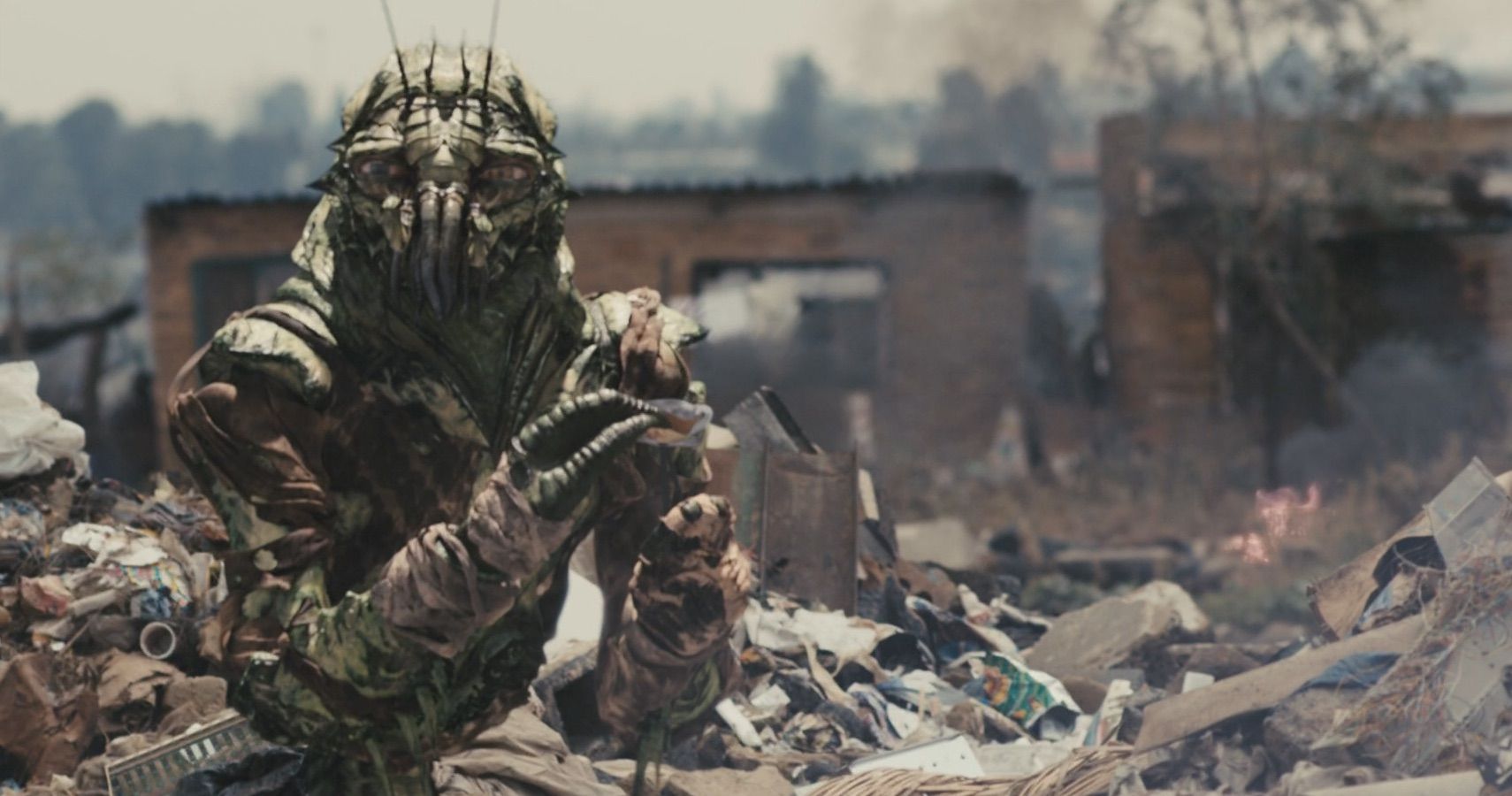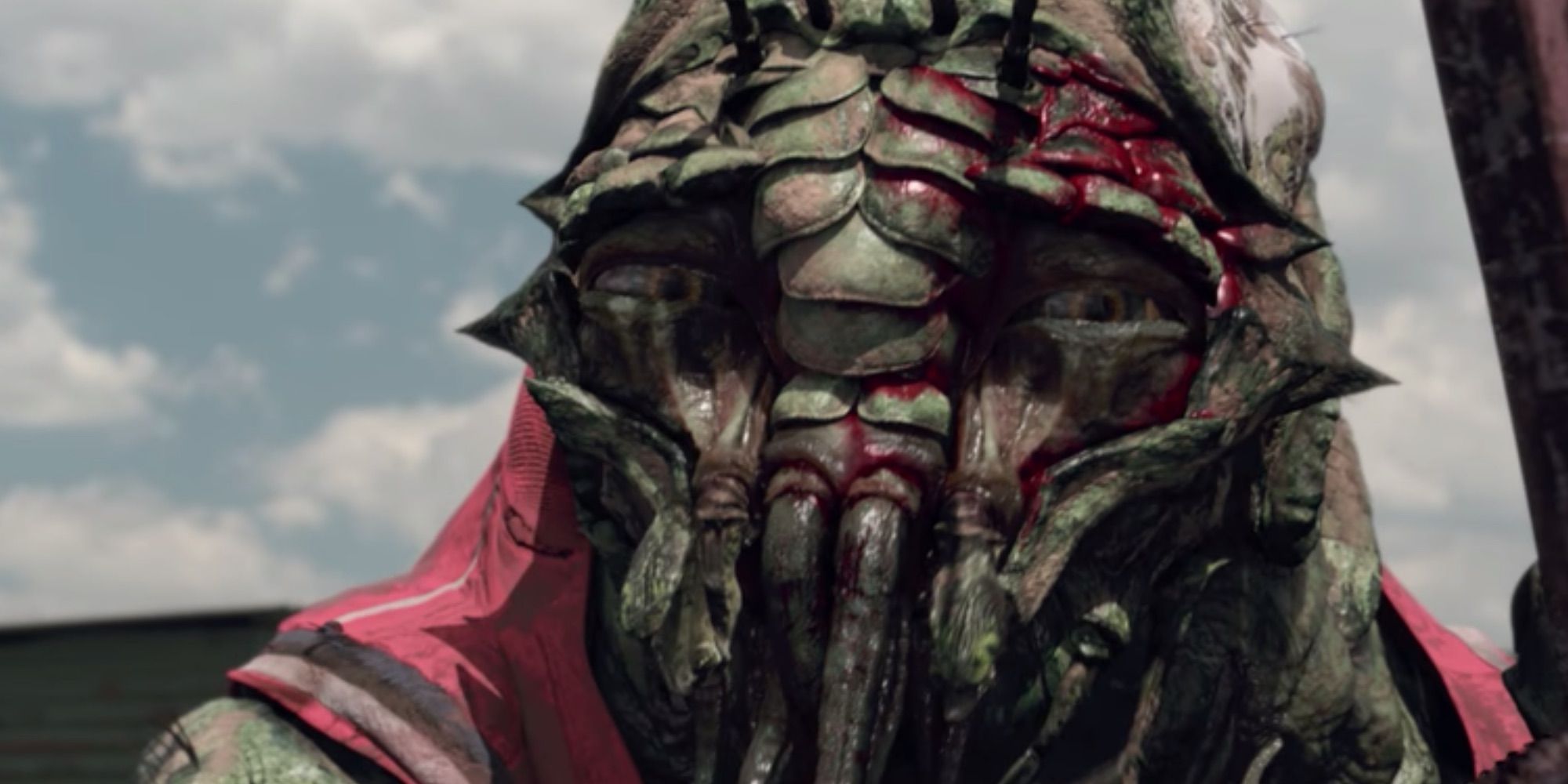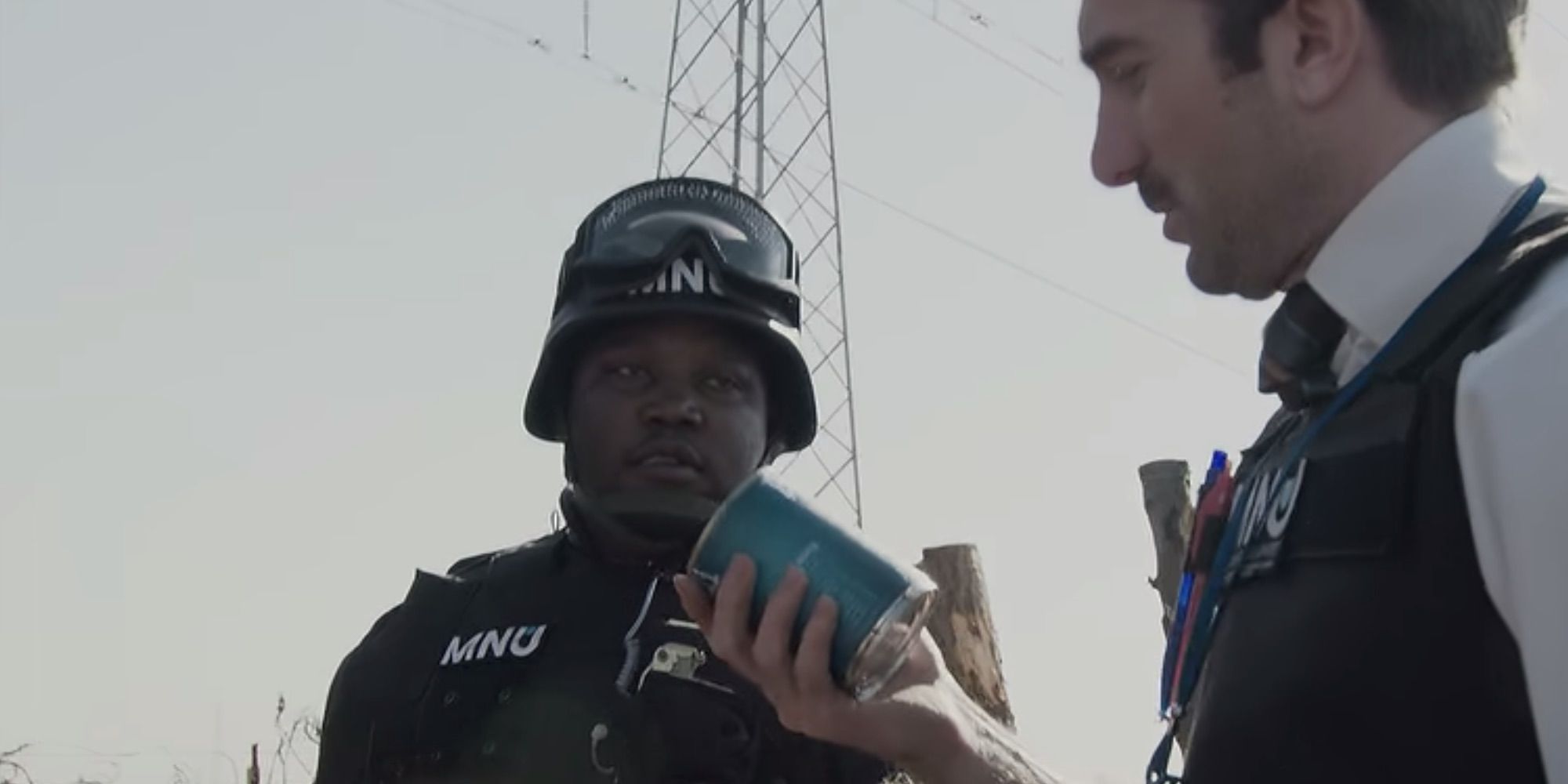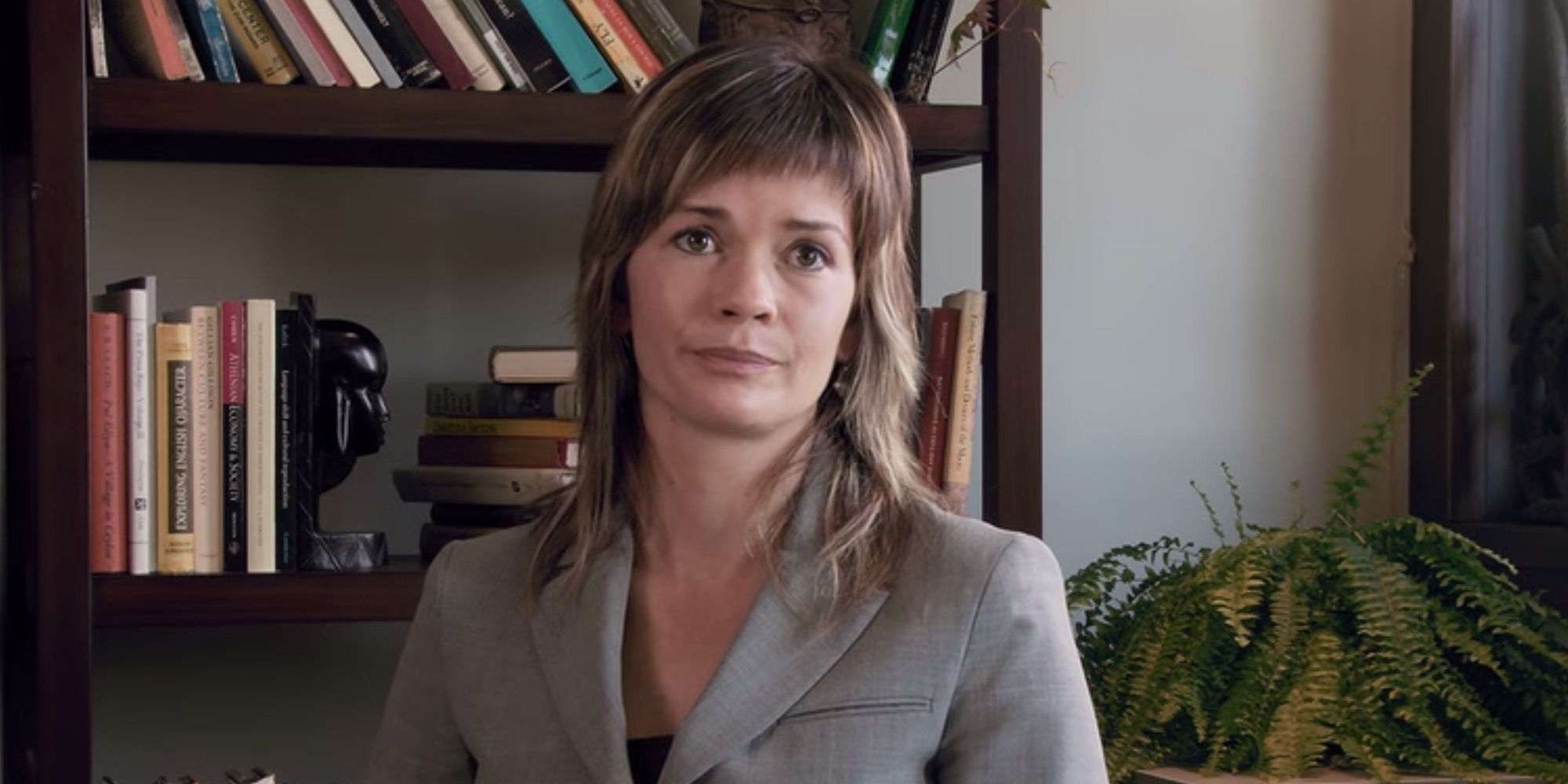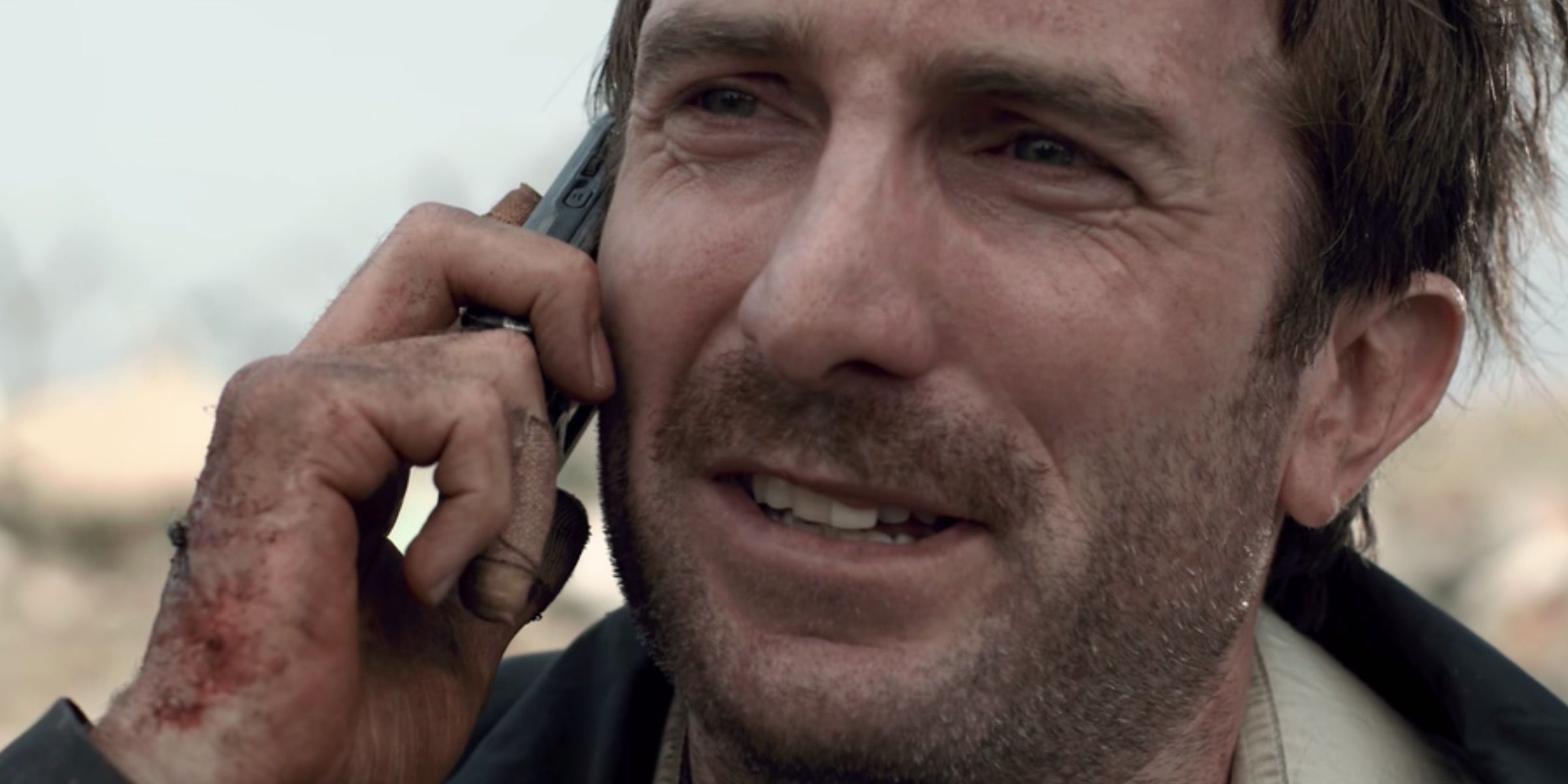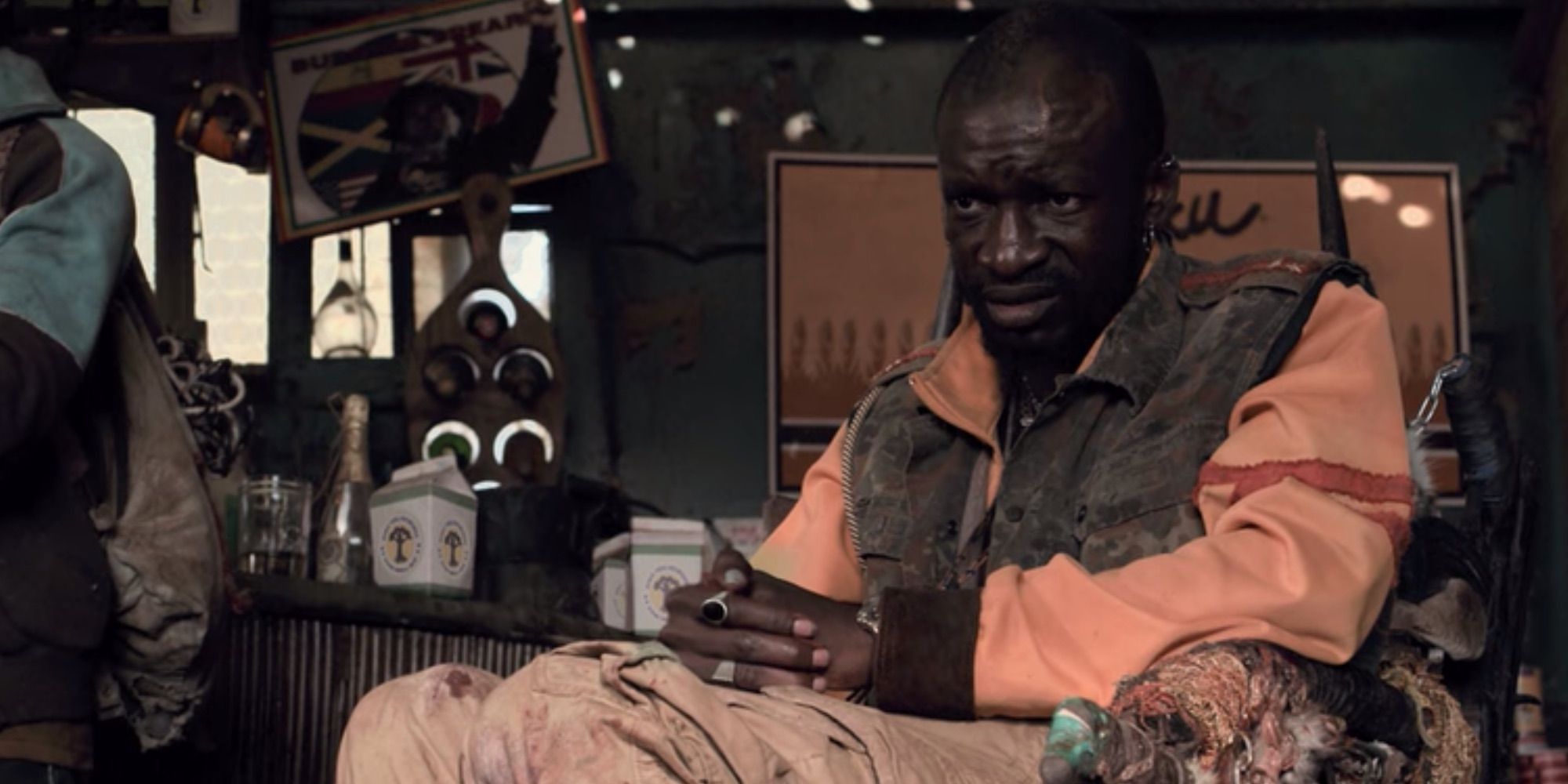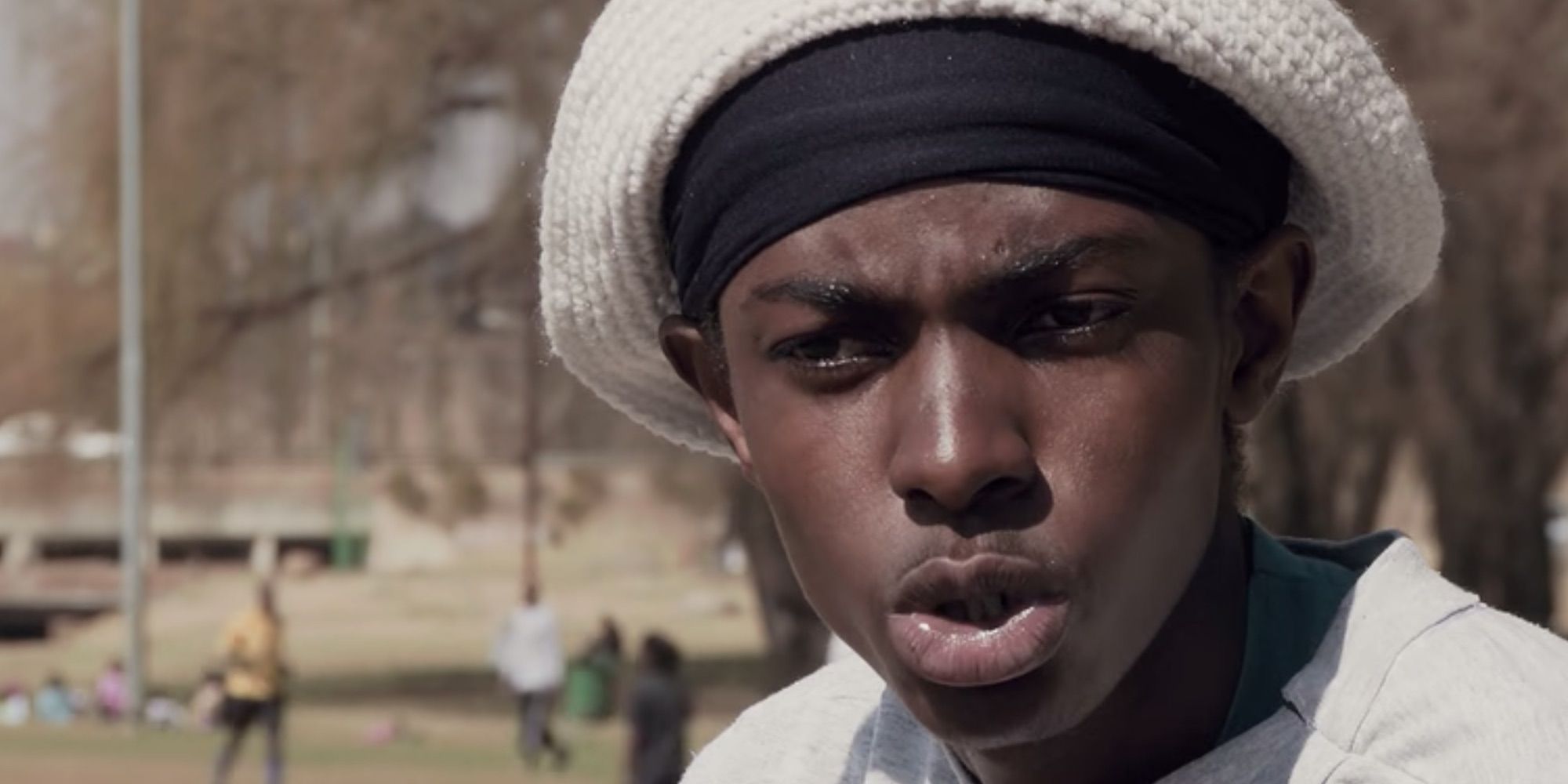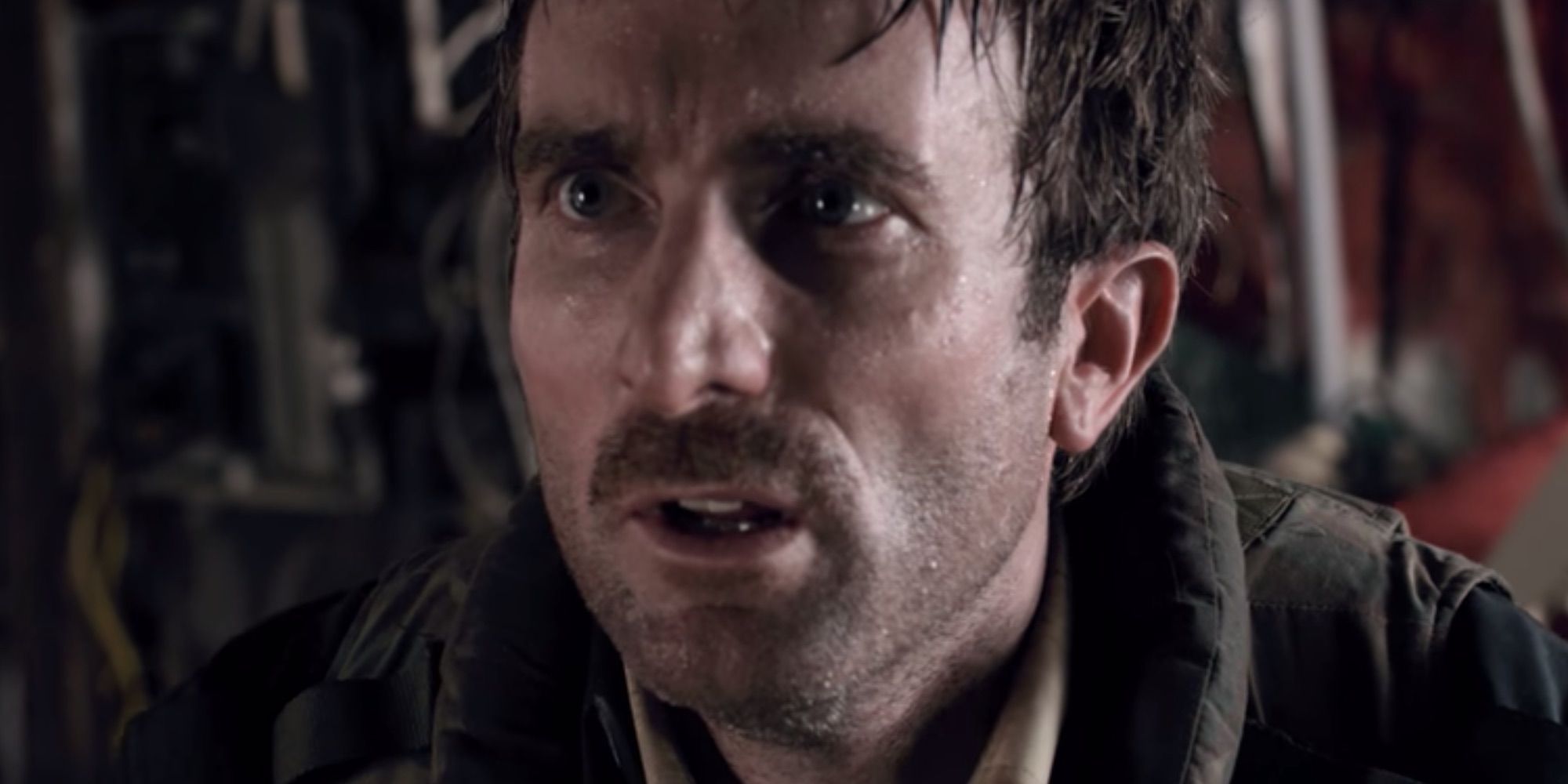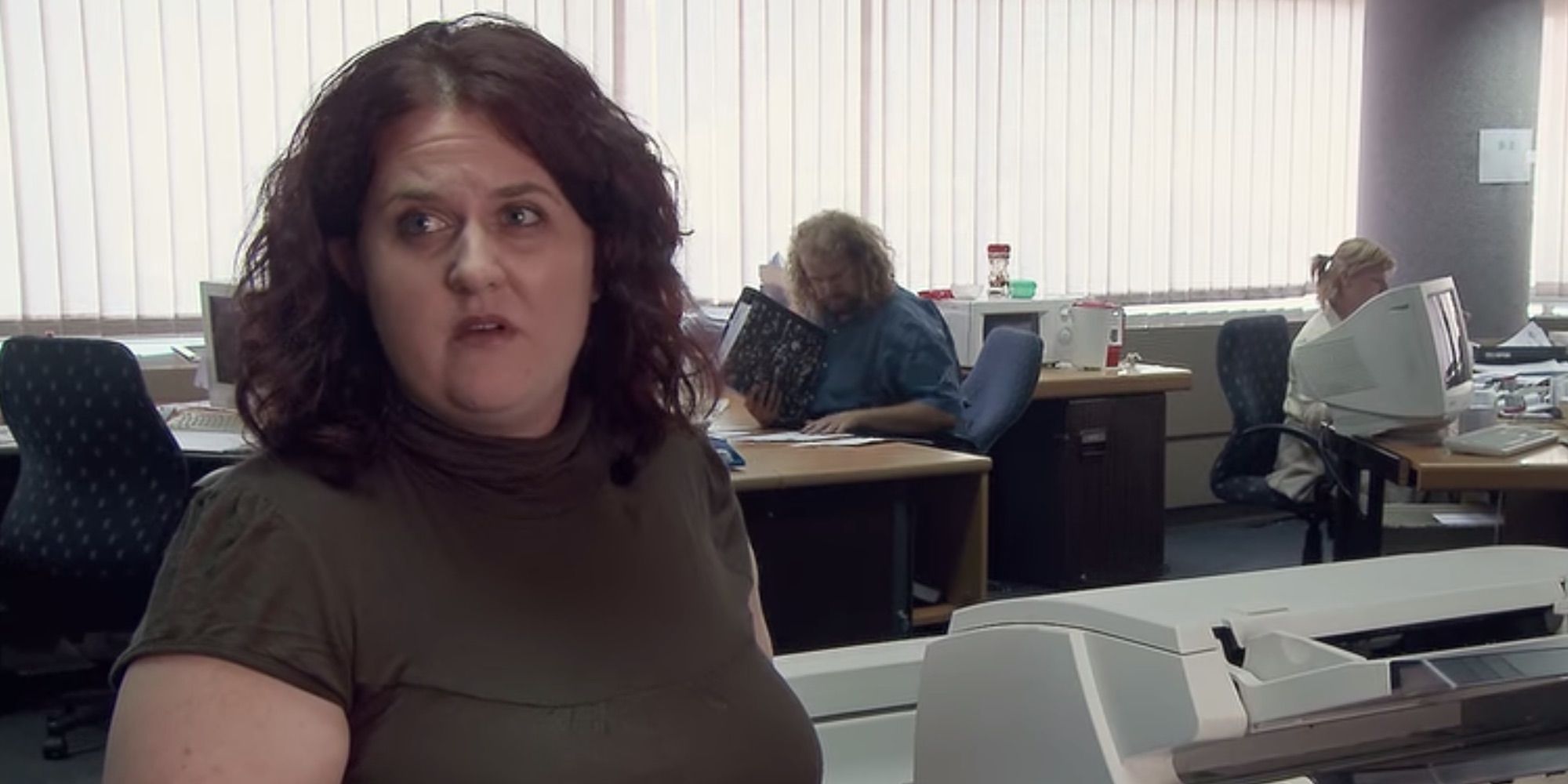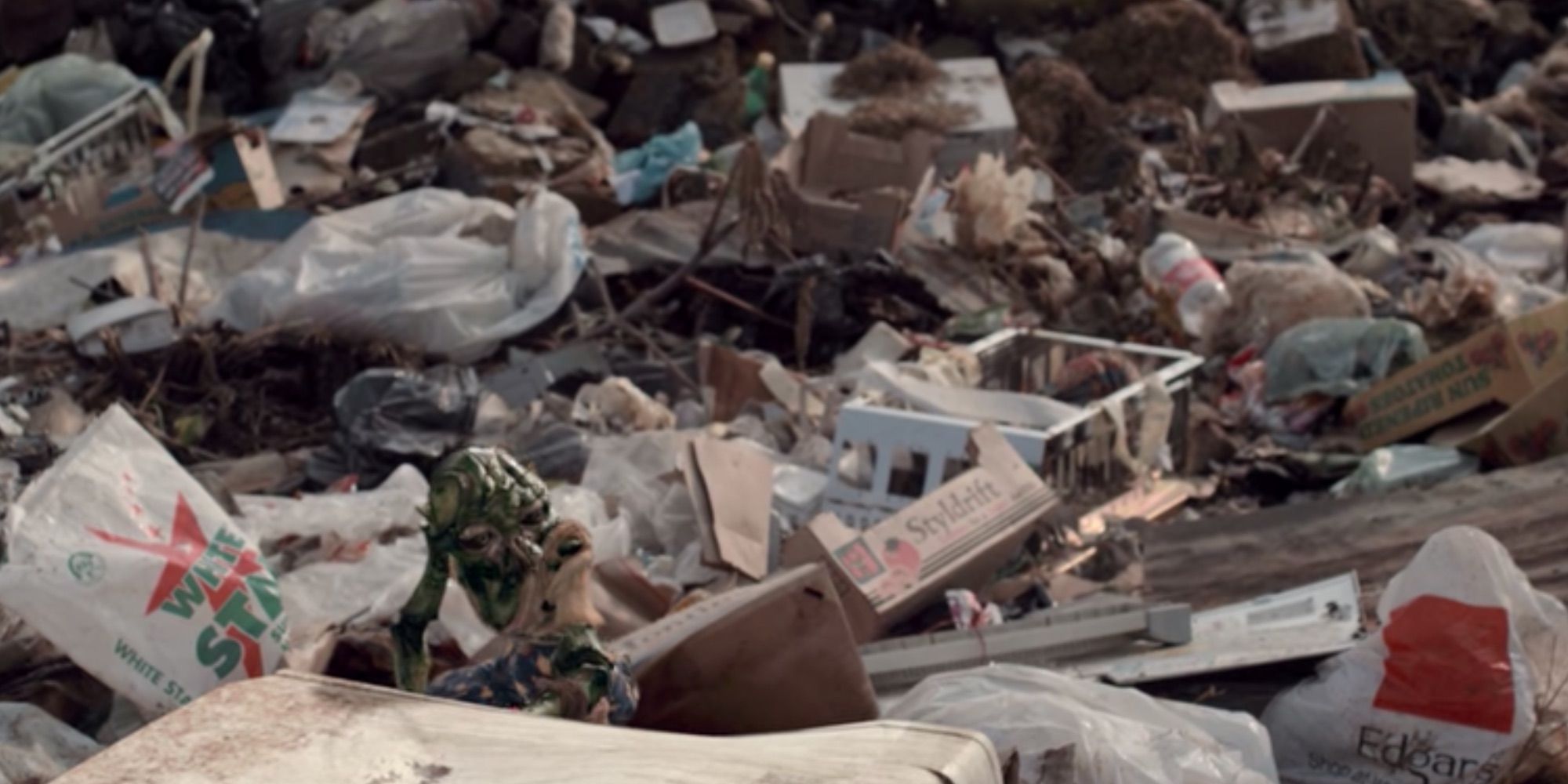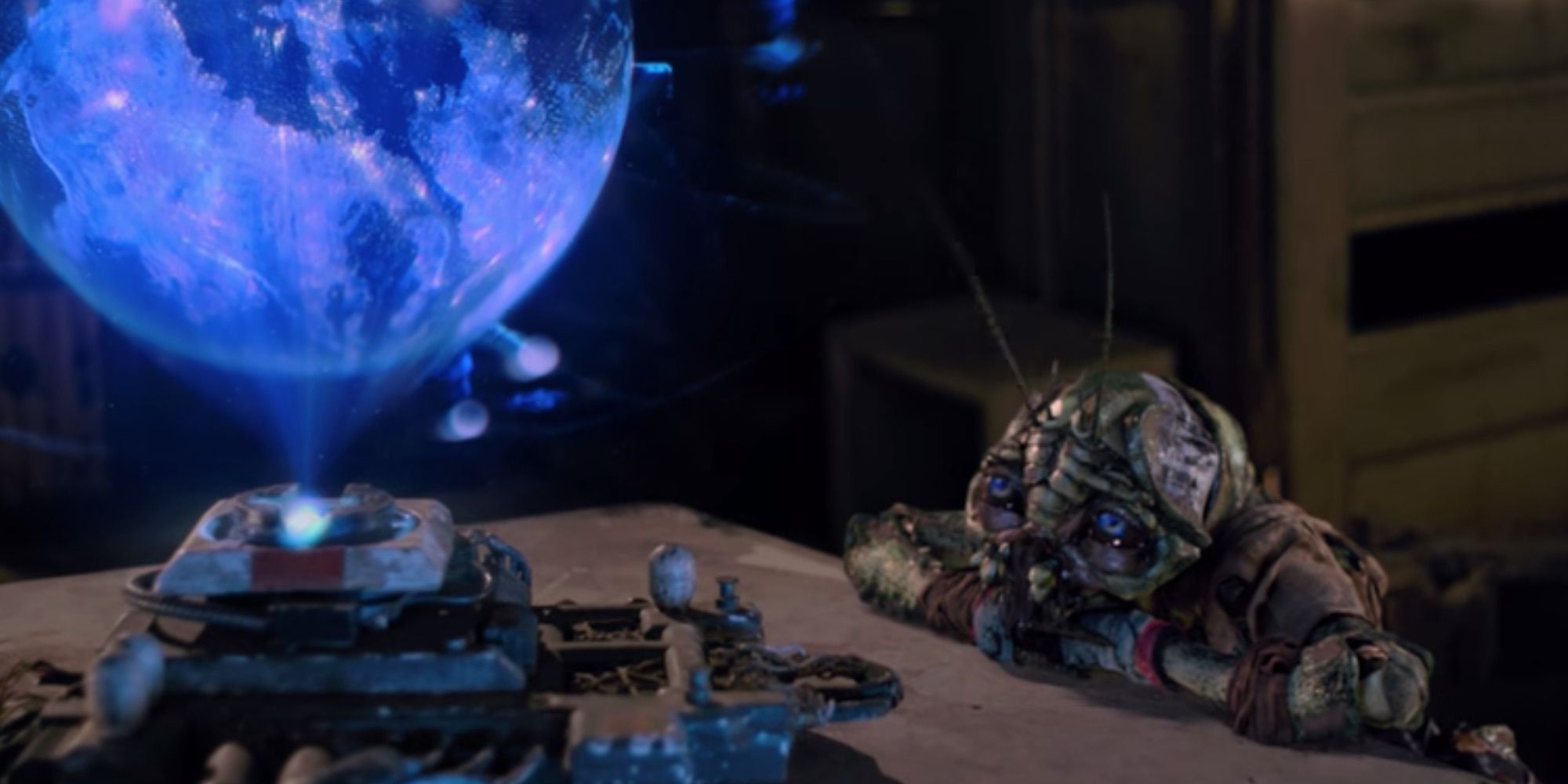District 9, directed by Neill Blomkamp, is a go-to for many sci-fi enthusiasts. It's a razor-sharp, brutally honest narrative of love, loss, abuse, and a hint of triumph—all done, of course, with aliens. If you're looking to be shocked and horrified, this is the film for you. If you're in the need for some fresh perspective on humanity, this is also the perfect piece to turn to.
District 9 is complicated. As soon as we think we know how we feel about a character, it's likely the next scene will confuse those feelings. Sometimes it's hard to gather exactly what we think amidst all of the conflicts at play. This article offers you the chance to slow down and look back on some aspects of the film you may have overlooked.
Aliens Go By Human Names
The main alien character in the film is referred to as Christopher Johnson. His son's name is C.J. Now, if Christopher had been born and raised on planet earth it might make a little more sense that he would have a human name. The longer the aliens spend on earth, the more normal it's likely to become that they adopt human practices. However, Christopher was not born on earth. He still remembers his planet, as we know from him telling his son about it. Therefore we can only assume that when aliens landed on earth they were pressured into assimilating to human ways, including discarding their own names and taking on human ones (a prime example of what happens to most immigrants in the human world).
It's Legal To Perform Alien Abortions Without Consent
Prior to becoming an alien-human fusion of a creature, Wikus wreaks havoc on alien lives. Arguably, he doesn't actually improve all that much even once he becomes half-alien, but one would like to think that spending time with alien child C.J. would make him think twice about gleefully aborting a nest of alien offspring as he does in the early scenes of the film. Wikus isn't the worst of the humans, but he's ignorant enough to imply that it's not okay to shoot alien children on the streets simply because it's not "legal." The film certainly doesn't take a stance on abortion, but it does make clear that aliens have no say in what happens to their bodies or that of their intended families.
No Group Is Superior
The major groups in District 9 are separated thus: there are the aliens, the general human public of Johannesburg, the district Nigerians, and the military (tied in with the doctors and businesses). Of all of these groups, none of them are enjoyable to witness. Varying degrees of sympathy are possible for each, but none as a whole has many redeeming qualities.
The Johannesburg civilians are ignorant and selfish, the military is intentionally hateful, the Nigerians are scheming, with loyalty to no one, and the aliens are violent. The aliens, however, show the most potential, as their characters are the ones most shrouded in mystery due to the fact that the most we learn about them is through the mouths of others, who are usually slandering them.
Wikus Is Driven By Guilt, Not Honor
Wikus' selfishness pervades the whole film. As a human, he has small moments where he shows more restraint in violence against the aliens than others do, and during these moments we are tempted to be touched by this, even congratulate him for it. In this way, the film offers plentiful opportunity to feel a sudden acute awareness of one's own very low standards of social responsibility. Wikus becomes part-alien and joins forces with Christopher, but any semblance of unity with the alien plight is shattered when Wikus reveals he is only in it for his own betterment.
The Nigerian Stereotyping Tests Us
The film is all about exploring human prejudice. It is a little strange, then, when we consider the representation of Nigerians. The Nigerians are portrayed as greedy, violent people only interested in individual gain. They take advantage of the aliens and mindlessly kill pretty much anyone else who gets in their way. In a film directly concerned with misrepresentation of groups of people, is Blomkamp really stereotyping Nigerians...? Perhaps he wants us to ask that question. It's an intelligent film, and it assumes an intelligent, questioning audience. Blomkamp gives every group in the film negative representation, causing a sort of equalizing effect that shows the human capacity for hate and greed across the board.
The Film Doesn't Apologize For Anyone
He may represent everyone with their most despicable traits, but Blomkamp does not apologize for the wrongdoings of any group's actions. This could give the film a brutal, pessimistic edge, but it also suggests a refusal to play god. Blomkamp creates fictional characters, but he gives them very realistic flaws which can be tied back directly into human history and behavior.
To redeem or forgive these characters would be to express a personal stance in relation to such awful behaviors in reality. Blomkamp isn't interested in apologizing for bigotry and racism. He wants to make you look at it and think about it.
It Resists Hero Narratives
Every viewer craves the relief of tension after an uncomfortable scene. District 9 almost never grants such relief. A more predictable storyline of the movie would see Wikus, the ignorant yet dopily endearing government worker, come to see the error of his ways once he becomes part alien and experiences the maltreatment aliens endure. Wikus would then join forces with the aliens and help them plan a revolt against the humans. This would have made a deeply satisfying movie, but a far less intelligent and honest one.
Average Civilians Are Framed As Dupes
Amidst all the turmoil the film occasionally shows a clip of a civilian—a homeless person, a police officer, a doctor, an office worker—giving their opinion regarding current events. The civilians always offer extremely essentialist viewpoints which show that they don't actually know what they are talking about, and furthermore, that while they pretend to know what they are talking about they are casting a very thin veil over the selfish roots of their opinions.
We Don't Know How Humans Learned Alien Language
The aliens speak in combinations of clicking noises. Wikus communicates with the aliens when he is still serving as a government worker, and although he definitely intentionally mishears some of the things they say—like protesting their eviction notices and intelligently articulating the illegal nature of the government's actions—Wikus seems to thoroughly understand their language. Nobody in the film ever speaks the alien language back to the aliens, but they somehow learned it. This may have been a technicality for the narrative of the film to work, but nevertheless it implies a degree of effort on the humans' part.
Little C.J. Is The Only Innocent
Christopher's son—although this term feels odd to use, as it doesn't seem to give him the respect of his own species—is a pure pleasure to watch. He exists in a state of good-will and hope, ever asking Christopher to tell him details about their home planet, always yearning to return there and learn about his species and their way of life. C.J. has seen the abuse that the aliens have faced at the hand of the humans, and is kind to Wikus anyway. He is the sole beacon of light in the film, and considering that Christopher raised him, he is a testament to the potential of the alien species.

